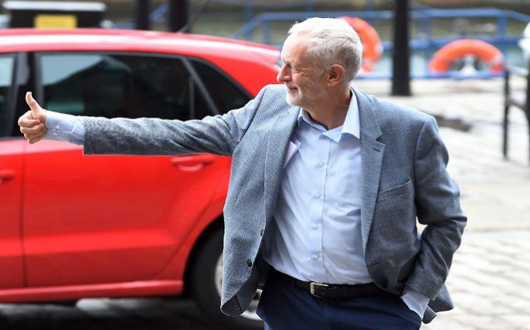LONDON, Sept 23, 2018 (BSS/AFP) – Britain’s Labour Party kicks off its
annual conference on Sunday hoping to prove it is ready to unseat the
embattled Conservative government despite its own splits on Brexit and rows
over anti-Semitism.
Leader Jeremy Corbyn has a golden opportunity to capitalise on Prime
Minister Theresa May’s weakness after European Union leaders rejected her
Brexit plans on Thursday.
But he must first ensure that his party’s internal tensions take a back
seat to bolster his image as a prime-minister-in-waiting.
“The sheer levels of animosity that exists between Corbyn and his opponents
is quite remarkable,” Anand Menon, political professor at King’s College
London, told AFP ahead of the four-day event in Liverpool.
Brexit is one of the fault lines, dividing even allies.
Most of Corbyn’s MPs and his younger supporters are in favour of the EU,
but many voters in the party’s working-class heartlands back Brexit.
Corbyn has so far tried to avoid the divisive subject, instead sticking to
promoting a domestic social agenda that helped him upset the odds at last
year’s general election and strip May of her parliamentary majority.
But with Brexit negotiations due to come to a climax before the end of the
year, party members look set to force a debate and a vote on the conference
floor pushing for a second referendum, something Corbyn has said he is
against.
“The big controversial thing would be… whether Labour commits itself to a
second referendum… because Corbyn has been trying to keep as ambiguous as
possible,” Steven Fielding, professor at University of Nottingham, told AFP.
Pro-EU supporters are due to hold a large march as the conference opens on
Sunday, calling for a second vote.
Corbyn will likely stick to his tried-and-tested method when he delivers
his keynote speech on Wednesday, according to experts, prioritising efforts
to bring down the government rather than trying to stop Brexit.
– ‘Abrasive language’ –
“I suspect the leadership would like to preserve the ambivalence that we
have seen so far (on Brexit),” said Tim Bale, chair in politics at University
of London Queen Mary.
“Whether they would be able to, in the face of the crushing coming from
below, would be an interesting thing to watch.”
Another potential issue hampering Corbyn’s designs on power is the anti-
Semitism row that has dogged the party since he took over in 2015.
He recently admitted the party had a “real problem” with the issue, leading
veteran MP Frank Field to quit last month. Field said the leadership was
becoming “a force for anti-Semitism in British politics”.
The National Executive Committee (NEC), the party’s ruling body, agreed
this month to adopt in full an international definition of anti-Semitism for
its code of conduct, but only after fierce opposition from those in the party
who believe it will limit criticism of Israel.
Labour’s polling numbers have remained relatively stable in recent months,
although the chaos in the Tory party could mask any impact of the scandal,
according to Fielding.
But the row continues to reverberate through the party.
“There is a lot of resentment, a lot of bitterness which I don’t think will
be very easily dispelled and there may be some Labour MPs who eventually
leave on the basis of antisemitism issues,” Fielding said.
A group of Labour campaigners will hold a rally on Sunday to protest
against Corbyn’s handling of the scandal.
“If they want this conference to work they are going to have to deal with
anti-Semitism, rather than pretending that they have dealt with it already,”
said Menon.
The row has deepened the divisions between Corbyn’s far-left supporters and
the more centrist faction of MPs who held power in the party after Tony Blair
took charge in 1994.
Centrist MPs now find themselves on the sidelines and battling for their
political lives in the face of aggressive attempts by Corbyn’s supporters to
de-select them, another issue that could raise tensions during conference.
“The leadership might try and persuade Momentum activists not to make it
(de-selection) a central plank of conference but the language is getting
very, very abrasive,” said Menon.



